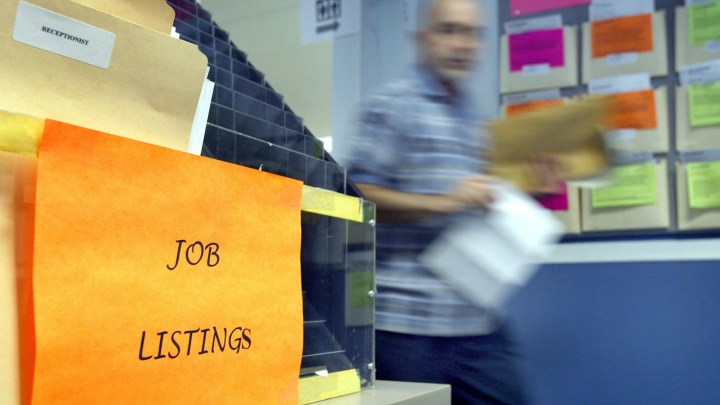
The pandemic is making people rethink their careers

Job openings and turnover both edged up in February, according to a report from the Bureau of Labor Statistics released Tuesday. Most hiring is in fields coming back from the pandemic, like restaurants and the hotels.
But those are not the only workers in play. A survey called “Pulse of the American Worker” is just out from Prudential, conducted by Morning Consult. It finds that 25% of workers plan to look for a new job soon — almost double the usual rate. And there are many reasons why.
Christian Schmidt left his job during the pandemic after taking stock of his life.
“I don’t wanna say I was unhappy in California. I wasn’t,” Schmidt said. “But I think there’s more happiness in a lot of ways right now.”
Schmidt’s a minister and recently moved to Maryland. He wanted to be closer to family. He was also tired of chasing prestige. “That exists in ministers’ lives, too — the lure of the big church,” he said.
People have personal reckonings about how work fits into their lives all the time. For instance, after they miss their kid’s big soccer game or someone close to them gets sick. Amy Wrzesniewski, a professor who researches the meaning of work at the Yale School of Management, said the pandemic has put us through a national reckoning.
“We know that these jolts make people think about what it is they’re doing. And this often leads to resets,” she said.
During the pandemic, 1 in 5 workers changed their line of work entirely, according to the Prudential-Morning Consult study. The top reason: reassessing work-life balance.
Wrzensniewski thinks this shift has been amplified by people working from home and feeling less connected to their workplaces and their colleagues.
“They were suddenly confronted with the work itself, right? You’re not getting dressed and traveling into work and seeing your friends and having lunch together,” she said.
There’s also plain old pent-up demand. Companies put hiring on hold and workers were scared to jump ship.
“If they had a job and could continue to work remotely, I think people felt that they were very fortunate and they ought to hold on to what they have,” said Tom Kochan, a professor of work and organization studies at MIT’s Sloan School of Management. “And so we’re going to see a bit of a surge.”
With many jobs staying remote, office workers have more opportunities than ever. For employers, that means: Let the competition over talent begin.
There’s a lot happening in the world. Through it all, Marketplace is here for you.
You rely on Marketplace to break down the world’s events and tell you how it affects you in a fact-based, approachable way. We rely on your financial support to keep making that possible.
Your donation today powers the independent journalism that you rely on. For just $5/month, you can help sustain Marketplace so we can keep reporting on the things that matter to you.

















